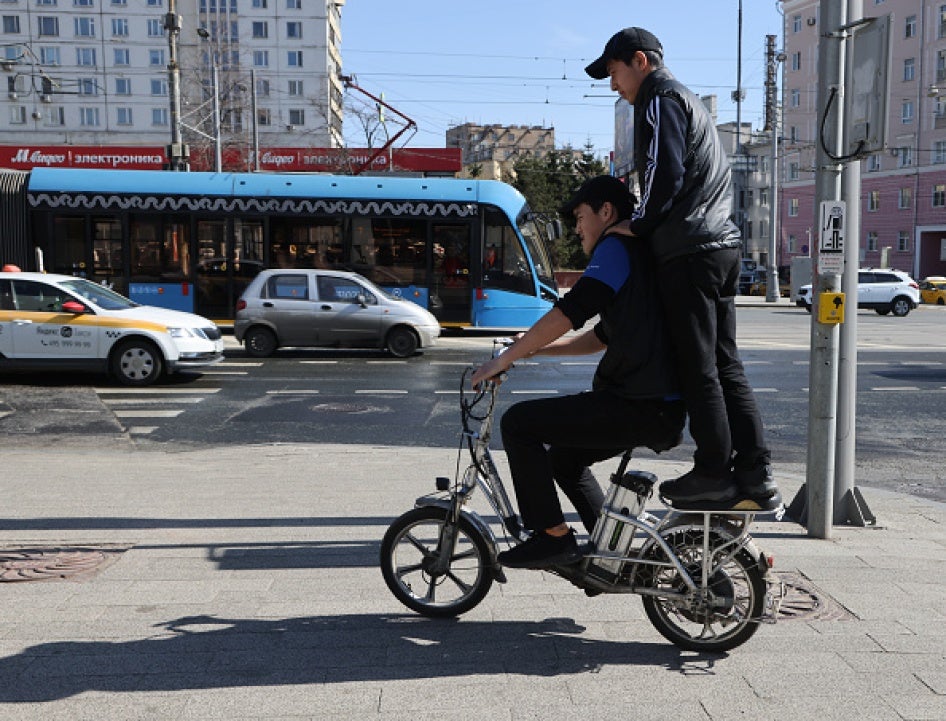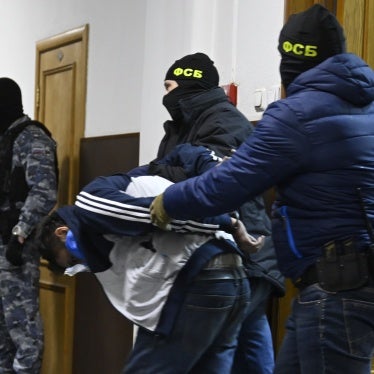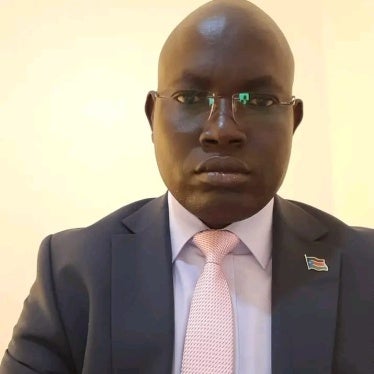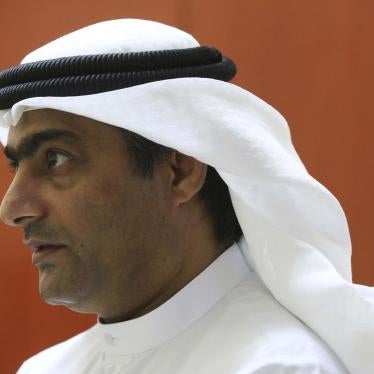(Berlin, April 5, 2024) – Migrants from Central Asia and other people of non-Slavic appearance are facing a notable increase in ethnic harassment and attacks in Russia in the wake of the March 22, 2024 attack on a concert hall on the outskirts of Moscow, Human Rights Watch said today.
Media reports describe an increase in ethnic profiling, xenophobic harassment and violent attacks by private parties and government officials, including arbitrary arrests and prolonged detention after several Tajiks were arrested in connection with the attack. This follows the apparent torture of at least two suspects, both Tajikistan citizens, by law enforcement personnel and escalating anti-migrant rhetoric by Russian authorities.
“Russian authorities should proclaim and enforce a zero tolerance policy for attacks on and harassment of Central Asians,” said Tanya Lokshina, associate Europe and Central Asia director at Human Rights Watch. “The authorities should stop their ethnic profiling of Central Asian migrants, arbitrary arrests, and prolonged detention, and instead ensure their safety, thoroughly investigate all xenophobic incidents and hold those responsible to account.”
In the two weeks since the attack, the media have reported cases ranging from refusal of services for migrants from Central Asia, dismissals from jobs, physical intimidation accompanied by anti-migrant slurs and slogans, and xenophobic violence. Reports include destruction of migrant-owned property beatings by groups of people, and attacks with pepper spray and knives.
Tajik migrants in Russia have described to the media the increased hostility towards them and their efforts to conceal their nationality for fear of reprisals. A Tajik migrant living in Moscow, who asked not to be quoted by name for her safety, told Human Rights Watch she feared going outside, having already experienced “suspicious looks” and aggressive calls to “get out of Russia.”
Human rights defenders say they are flooded with calls and requests for assistance from Central Asian migrants.
A prominent Russian human rights research organization has reported a spike in violence by ultra-nationalists against people they identify as non-Slavs and migrants. Telegram channels affiliated with ultra-nationalists feature videos of beatings, property destruction, hooliganism, and acts of harassment tagged as “revenge for Crocus City Hall.” A video posted on March 30 shows two young men catching up with a man peacefully walking next to a residential building and beating him. The video is accompanied by a running commentary describing the man as “Tajik” and claiming that the assailants also eventually hit him with a hammer on the back of his head.
Rather than condemn the xenophobic violence and harassment, Russian authorities have carried out raids and checks against migrants from Central Asia, especially Tajiks. Court cases against migrants for alleged violations of migration regulations appear to have increased by 70 percent above average for 2024 in the week following the attack, Human Rights Watch said based on its analysis of the best available court data.
Russian policymakers are proposing harsher migration-related legislation and policies, and to annul the current visa-free policy for people from Central Asian countries. At a meeting with the Interior Ministry on April 2, President Vladimir Putin said that the Crocus City Hall attack should not be used to justify xenophobia but at the same time, that “illegal migration” to Russia fostered a “fertile ground for extremist activity”.
In 2023, experts had already reported a rise in attacks by ultra-nationalists and noted a rise in xenophobic anti-migrant rhetoric in parliament, the media, and wider society. The UN Committee on the Elimination of Racial Discrimination (CERD) also expressed concern in 2023 about the spread of hate crimes and racist hate speech in Russia, including by government-owned media, politicians, and public figures, and the lack of information on accountability for these statements.
The UN Committee said that the Russian government should “[f]irmly condemn any form of hate speech and distance itself from racist hate speech expressed by politicians and public figures … and ensure that such acts are investigated and adequately punished.” The authorities failed to act on the Committee’s recommendations and following the Crocus City Hall attack, the situation has notably deteriorated, reports indicate.
Governments have an obligation under international human rights law to protect the right to life and security of everyone within their country without discrimination. Key international actors, including the United Nations special rapporteur on human rights of migrants, should urge the Russian authorities to categorically condemn and effectively investigate all xenophobic attacks in the aftermath of the Crocus City Hall attack as well as to ensure that there is zero tolerance for anti-migrant hate speech by public officials.
“Russian authorities should promptly respond to all reports of xenophobic violence against Central Asians, address the broader issue of rising xenophobia, and ensure a normal working climate for labor migrants from Tajikistan and other countries,” Lokshina said.








